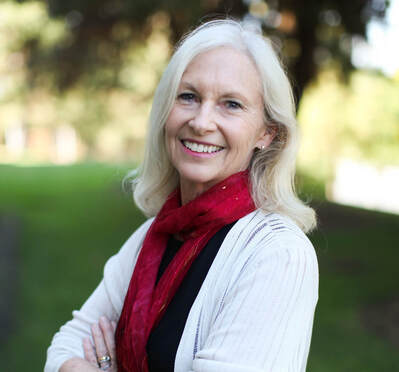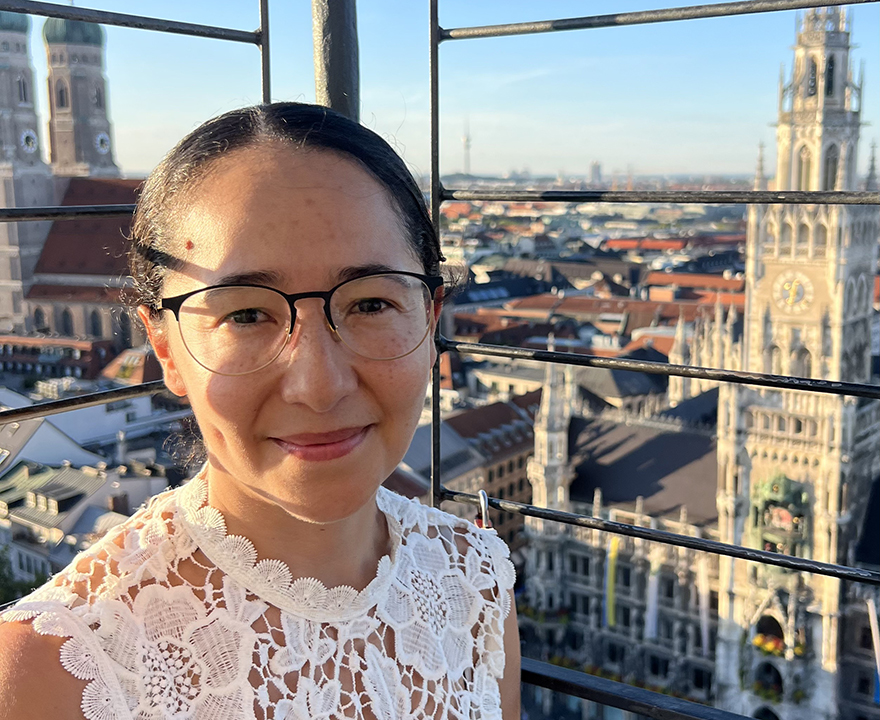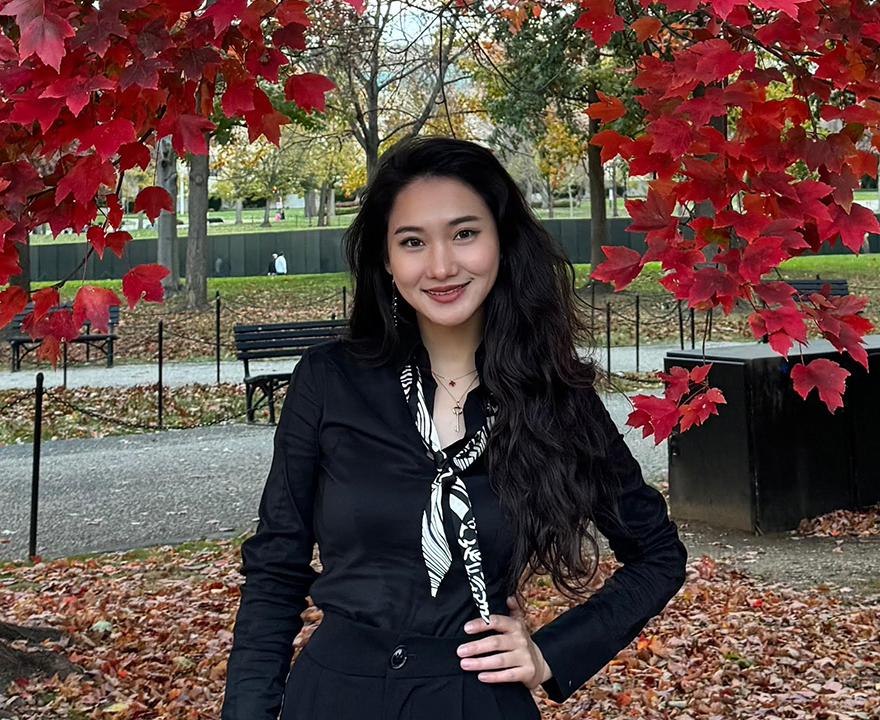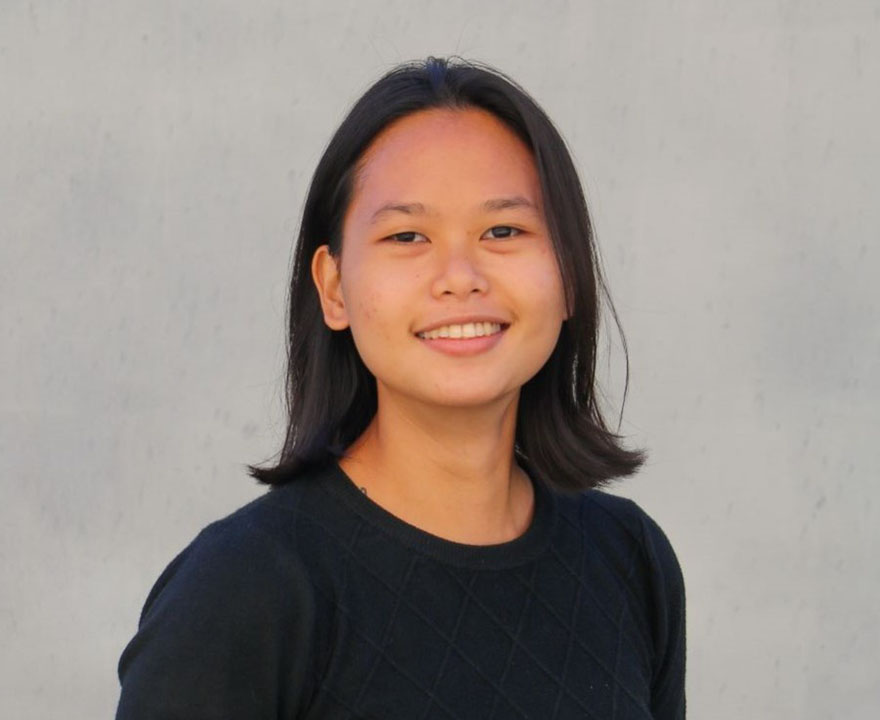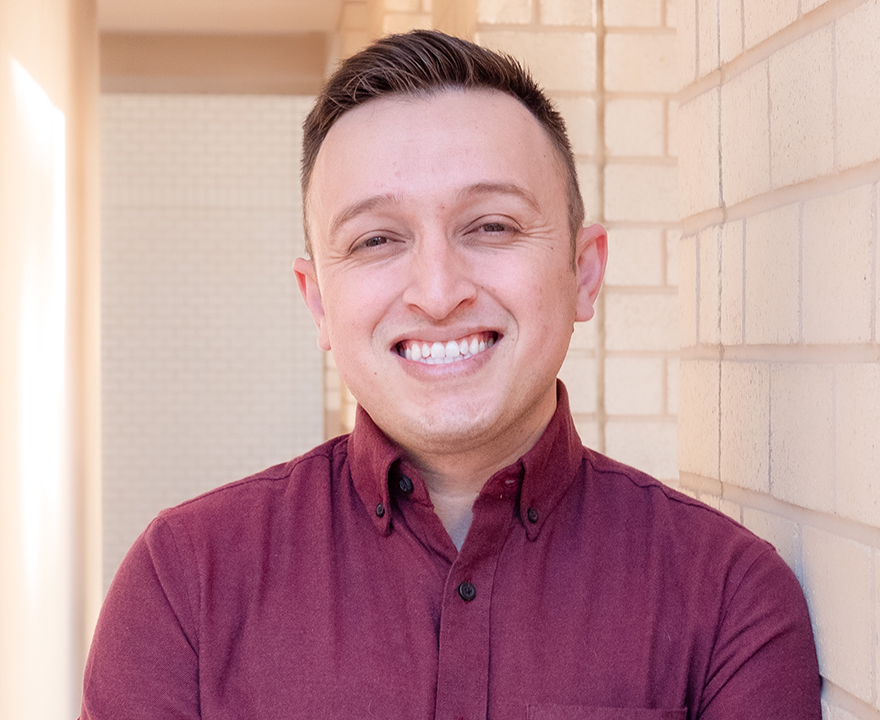Jill Kato for UC Irvine School of Social Sciences
Jozef Robles never expected to be here at UC Irvine, or in a Ph.D. program in one of the top-ranked sociology departments in the country. He never expected to be preparing to interview for faculty jobs or traveling to conduct dissertation fieldwork funded by prestigious fellowships.
“Just being able to say that I even qualify for things like this is surreal,” he says. “My 18-year-old self would have never believed it.”
What stays with us
Robles’s dissertation, The Transformative Effects of U.S. Immigration Law Post Legal Status Regularization: A Comparative Analysis, explores what happens to undocumented immigrants after they gain legal status. His fieldwork took him from Southern California to Houston, where he conducted 76 interviews with formerly undocumented Mexican and South Korean immigrants who adjusted their status after 2016.
“People often assume that once you’re a resident or a citizen you have nothing to worry about,” he says. “But what we’re seeing now is that those protections are far from guaranteed.”
His research challenges assumptions about immigration and belonging. Gaining legal status doesn’t automatically erase fear or stigma. Many continue to behave in ways shaped by years of living in the shadows, such as pulling over to avoid police, even when there’s no longer a need. Robles’s research explores how those behaviors and emotions persist well after someone gains legal status.
“Jozef’s innovative dissertation centers around a phenomenon he calls the ‘remnants of illegality,’ the psychological and material implications of illegality that continue to shape immigrants’ life experiences long after they have adjusted their legal status,” says Irene Vega, associate professor of sociology and chair of Robles’s dissertation committee. “His dissertation is going to change the way we think about the lasting impacts of illegality.”
For many, legal status once eclipsed all other parts of their identity. Robles finds that after legalization, people begin to view themselves through a more racial lens. With the burden of illegality lifted, race becomes newly visible and salient.
That kind of perspective, one that bridges the personal and the structural, is what Robles brings to his own academic path, shaped as much by experience as by his research.
Disbelief to determination
For the early part of his life, Robles was undocumented. He was brought to the United States from Mexico at the age of two and grew up in Orange County believing he was just like everyone else.
“Then I suddenly realized I wasn’t – I wasn’t legally supposed to be here. It was a lot to take in.”
That realization unraveled Robles’ sense of identity. He had always been good at school, but now higher education felt like a dream that didn’t belong to him. He questioned the point of going to college if he couldn’t work legally afterward. His ambitions faded, and for a time, he dropped out.
But everything changed in 2013, when Robles received protection under the Deferred Action for Childhood Arrivals (DACA) program. It gave him permission to work and a foothold to imagine something more.
“I think that undocumented status absolutely just rocked so many things in my life,” he says. “It changed who I thought I was, and my ambitions in this country.”
DACA allowed him to return to school with a renewed sense of purpose. He earned two associate degrees with honors from Santiago Canyon College, followed by a sociology degree from Cal State Long Beach and a master’s from Cal State Fullerton. And he’s now in his fifth year as a Ph.D. candidate in sociology at UC Irvine, working on a dissertation that builds directly from his own story and those of many others.
Where he needed to be
UC Irvine was never supposed to be Robles’ destination.
“When I applied, I told myself, I’ll only go if I don’t get in anywhere else,” Robles says laughing at the irony. “I wanted to finally have that American college experience—go somewhere new, live in a dorm, be far from home. Irvine was just too close.”
After growing up undocumented, grad school was an opportunity to live somewhere else. And at first, he planned to. But something shifted. During his interview, he spoke with Vega and felt an immediate connection.
“There are just some people you click with,” he says about their first meeting.
Robles was also drawn to the department’s culture of mentoring and the resources available to students. As he attended virtual open houses during the pandemic, UC Irvine rose to the top of his list. Then his husband was accepted into a master’s program on campus and the decision was clear.
“I think sometimes life points you in the direction that you need to go, even if it’s not where you think you want to be,” Robles says. “Looking back, I wouldn’t have wanted to be anywhere else.”
That decision proved to be the right one. Robles quickly found his footing in the program and began building the kind of scholarship he once thought might be out of reach.
“Jozef is an absolute star—he is intellectually curious, creative, astute, and has impeccable work ethic,” says Vega. “He continues to grow in skill and confidence. I am very much looking forward to his very bright future in academia—we are lucky to have him.”
Perfect alignment
Robles credits much of his progress to mentorship. Vega helped him publish his first solo-authored article. Another faculty member, sociology associate professor Rocío Rosales, co-leads a project with him interviewing immigrants in detention centers through letter writing.
“There’s so much about academia that isn’t written down, things you don’t know how to ask,” he says. “Being part of groups like the qualitative research collective, getting feedback, and just having people invest in you—that’s made a huge difference.”
Robles is also grateful for the support he has outside of campus. His husband, who he calls his biggest support system, has walked a similar academic path.
“We’ve both had to put our education on hold at different points, and now we’re doing it together,” he says. “I don’t know if I could do this without him.”
After years of uncertainty, Robles now has permanent residency and completed his citizenship interview this summer. As he finishes his dissertation, he’s turning his attention toward faculty and postdoctoral applications—steps that mark not just a career transition, but a life redefined.
“I’ve been trying to understand who I am now, merging the different parts of my life,” he says. “Now that I’m a citizen, I’m exploring my identity outside of my previous legal status. For the first time, who I believe myself to be and how the country sees me are finally in alignment.”






